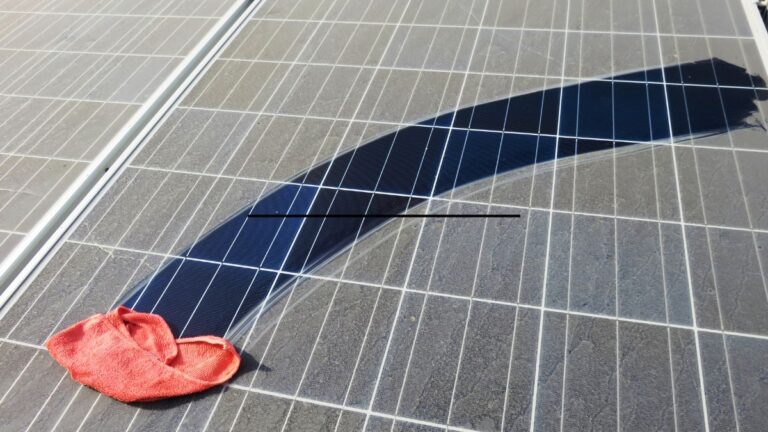Exploring the Best Battery Options for Whole Home Backup System
In the realm of home energy backup systems, whole home backup system serves as a robust battery storage system that can deliver power to an entire household during power outages. These systems, albeit costly, with a minimum price point of around $40,000, present a viable solution for uninterrupted power supply.
In order to make an informed decision when selecting a whole home backup system, you should consider some important factors such as battery capacity, scalability, battery power, and compatibility with energy management systems.
An overview of prominent companies such as Blue Planet Energy, Enphase, Generac, HomeGrid, and SolarEdge is necessary to determine the best battery option for whole home backup. This overview will highlight their respective advantages and compatibility with diverse energy management systems.
Understanding Whole Home Backup
Determining the size of the battery system for whole home backup is crucial, as it depends on the individual battery capacity and the number of batteries stacked together.
To adequately power a whole home during an outage, it is necessary to consider the energy consumption and the average daily electricity usage of the home, which is around 30 kWh. Therefore, it requires a battery system with a capacity of at least 30 kWh.
It is also important to install solar panels to charge the battery system during the day, taking into account weather conditions.
Additionally, the power output of the battery system is significant. Peak power refers to the ability to turn on power-hungry appliances, while continuous power ensures sustained power supply. It is essential to consider the power requirements of multiple devices running simultaneously to avoid exceeding the battery’s continuous power output.
Choosing a Backup System
When selecting a backup system for powering a residence during an outage, it is important to consider factors such as battery capacity, scalability, power, and compatibility with energy management systems.
Battery capacity refers to the size of the battery system, which must be sufficient to power the entire home.
Scalability is an important consideration as it determines the ability to expand the battery system if needed.
Power, in kilowatts (kW), determines how many devices it can power simultaneously. It is important to assess both peak power, which is required for turning on power-hungry appliances, and continuous power, which is sustained power supply.
Lastly, compatibility with energy management systems ensures seamless integration and efficient control of the backup system. Considering these factors will help homeowners choose the most suitable backup system for their residence.
Capacity and Power Considerations
Capacity and power considerations play a crucial role in selecting an appropriate battery system for residential backup during power outages. The size of the battery system is a key factor to consider for whole home backup. It is determined by individual battery capacity and the number of batteries stacked together.
To power an average American home for a full day, you need a battery system of at least 30 kWh. You can install solar panels to charge the battery system during the day, however you should also take weather conditions into account.
The power determines the capability of simultaneously powering multiple devices. It uses the peak power to activate power-hungry appliances, while continuous power provides a sustainable supply of power. It is important to note that running multiple devices simultaneously may exceed the battery’s continuous power output.
Top Battery Companies Overview
One important factor to consider when selecting a battery system for residential backup during power outages is the reliability and compatibility of the battery company’s energy management system.
The energy management system plays a crucial role in monitoring and controlling the battery’s performance, ensuring efficient use of stored energy, and maximizing the lifespan of the battery.
It is essential that the battery system is compatible with the energy management system to ensure seamless integration and optimal functionality.
Additionally, the reliability of the energy management system is important for uninterrupted power supply and effective management of the battery system.
Therefore, when choosing a battery system for whole home backup, it is imperative to thoroughly evaluate the reliability and compatibility of the battery company’s energy management system to ensure a reliable and efficient backup solution for residential power outages.
Comparing Battery Features
To effectively compare battery features for residential backup systems, it is important to assess factors such as battery power, scalability, and compatibility with energy management systems.
Battery power refers to the capacity of the battery system to provide electrical energy. Scalability refers to the ability to expand the battery capacity by adding more batteries. Compatibility with energy management systems ensures seamless integration with other components of the home energy system.
The table below provides a comparison of battery features for the best whole home backup batteries:
| Battery Company | Maximum Capacity (kWh) | Peak Power (kW) | Continuous Power (kW) | Smart Panel Compatibility |
|---|---|---|---|---|
| Blue Planet Energy | 480 | 17 | 8 | Schneider Electric |
| Enphase | 40.32 | 5.76 | 3.84 | Lumin |
| Generac | 36 | – | 11 | Generac PWRmanager |
| HomeGrid | 576 | 24 | 16 | Savant |
| SolarEdge | 87.3 | 7.5 | 5 | Lumin and Span |
These battery systems offer different capacities, power outputs, and compatibility options, allowing homeowners to choose the one that best suits their needs.
Conclusion
Selecting the best batteries for whole home backup system requires careful consideration of various factors such as battery capacity, scalability, power output, and compatibility with energy management systems.
The average American home consumes approximately 30 kWh of electricity per day, necessitating a battery system of at least that capacity to sustain power for a full day.
With an array of options available, battery companies like Blue Planet Energy, Enphase, Generac, HomeGrid, and SolarEdge offer reliable solutions, each with their unique advantages.
An interesting statistic to note is that the minimum cost of these battery systems is roughly $40,000, highlighting the substantial investment required for whole home backup.







9 Comments
Comments are closed.